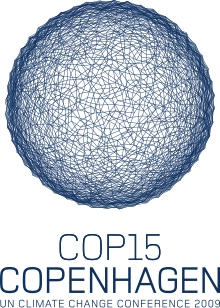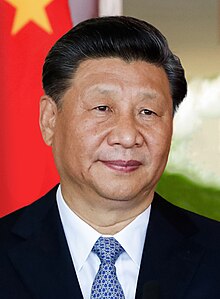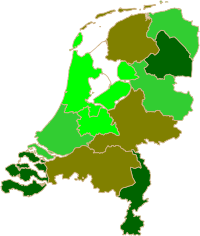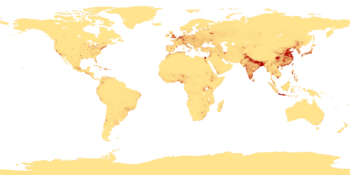Liberation
Lots of people thought 2022 would be the year of liberating us from that terrible virus which got the world in its grip. Though not a liberation became several people on their part, an even more senseless killing ‘disease’ came unto Europe.
The leader of the Russian Federation, Vladimir Putin, who would love to find a renewed Soviet Union, said at the beginning of the year he would bring liberation to the Ukrainians. Instead, his “bloodstained” tyranny plunged Europe into the war on a scale not seen since 1945 as Russian troops advanced on Kyiv on Thursday night, February 24th.
The invasion of Ukraine by Russia is shocking and disgraceful. It is the latest terrible aggression by the Putin regime and the latest damaging conflict in our world, with so many people being killed or injured, losing loved ones and seeing their homes destroyed.
2022 has been a tough year to navigate, with a series of political and economic crises that continue to shape our world.
One powerful man
Who could have ever imagined that one man, from up north, would single-handedly turn the world upside down? However, he has succeeded very well in not only bringing black snow over several people, and literally turning the landscape blood-red, he has severely disrupted economic life in several countries.
Following two long pandemic years – with many still experiencing the effects – we’ve witnessed the outbreak of war in Ukraine and could feel in our purse how it affects us also in our region. We cannot ignore this war that has affected many citizens. At our new WordPress Site “Some View on the World” we have given a voice to those suffering in the conflict as well as reporting the situation on the ground and providing the expertise needed to understand geopolitics.
Picturing what is happening in the world
As best we can, we try to give a picture of what is happening in the world on the continuation of “Our World“. 2022 was another year of figuring out how we would be able to keep up with bringing political and religious news alongside our other spiritual websites. We hope to find that balance further in 2023.
By nature, I am not an easy person and have dared to clash several times by speaking my mind outright. Even in the articles, I publish here and on my other websites, my thinking is based on my personal opinion. One can agree or disagree with that view. I, therefore, appreciate that people also dare to express their opinions. But in general, there is a little reaction in that area. Still, I hope the articles brought, can make people think. For instance, I was happy to find that my op-eds on Christmas in the Daily Telegraph were able to bring a debate after all.
Hoping to expose wrongdoings
With the news we place at Some View on the World we do hope we also could be able to expose the mistreatment and deaths of migrant workers in Qatar for almost a decade as well as other wrong attitudes towards people as well as animals and plants. At my personal site and this site as well, in particular on “Some View on the World” we continue to bear witness to the climate crisis as it destroys lives, uproots whole communities and changes the course of our shared future. We hope for 2023 to be able to bring regular news about our environment.
The fallout from the January 6 hearings and Donald Trump’s presidency could get our attention, and we hold our hearts for the intentions of Mr Trump, wanting to come back as president of the U.S.A..
Independence of my websites
For all the reporting we do here, and on my other websites, I would like to remind you, readers, that there is no financial support from companies anywhere and that all reporting is based on personal and independent reporting, where I keep searching for this site among texts that appear on the net what could possibly be fascinating for you to read as well, and thus to reblog them here.
2022 could bring lots of blogs on the net of which we presented some selections over here too. At Firefox several could find their way into ‘Pocket’, like: Why the Past 10 Years of American Life Have Been Uniquely Stupid, How to Want Less, A Neurologist’s Tips to Protect Your Memory, Why You Should Really Stop Charging Your Phone Overnight, A Guide to Getting Rid of Almost Everything, a.o. most read.
Uncovering and unravelling
Whether on social, political or religious issues, we are eager to seek the truth and expose false reports. Exposing wariness is not always appreciated, but is very important in our view. To do that, we can count on several investigative journalists and some newspapers to join in the pursuit of that muddle, so that together we can make certain things known to the world while others would rather see them covered up.
At Some View on the World we have maintained round-the-clock coverage from several places, not always bringing nice news, like mass graves of Bucha, Izium and many war crimes.
The war accelerated a global economic slump, sending costs soaring, throttling energy supplies and raising the spectre of blackouts, malnutrition and a winter of discontent across dozens of countries. As global food supplies fluctuated, we reported on the hunger gripping the Horn of Africa and Afghanistan. In 2022, it became impossible to ignore those victims in poorer countries. But sadly, we had to observe how little the public cared about those people living far from their homes. And closer, many did not wish to have refugees, so we could speak of a refugee crisis again this year.
Here in Belgium, the influx of refugees seems completely uncontrollable and many, even with small children, shamefully had to sleep outside several nights through rain and wind. This while in Great Britain, the reception was also not going smoothly and people started looking for a housing solution in Rwanda, and proceeded to deportations.
Condition of mother earth
A lot of people do not want to realise that things are very bad for Mother Earth. To this, in 2022, several scientists again tried to make it clear to the world that we need to think seriously about this and take action. We were confronted with UK’s hottest summer, a very early and long great Summer in Belgium, drought in Europe, and the accompanying fires.
Heating the houses became for many difficult to keep in the household budget. It looked like mother nature felt the pressure on the energy market, as well. Everywhere in Europe, we had extremely high temperatures for the time of year. In Belgium 2022 became the warmest year since measurements.
The climate emergency ran as a constant thread through much of our Some View on the World journalism in 2022.
While many European countries were suffering from a shortage of water, they had it in other countries, like Pakistan, too much. Devastating floods in Pakistan, encountering one of its worst natural catastrophes, Sydney’s wettest year on record, ferocious heatwaves in the US southwest and the costliest Atlantic hurricane for years, could catch our attention.
At Cop27 in Egypt, the Guardian asked the tough questions. Though, we did not give so much attention to the changing tactics of activists, now more likely to throw soup at a painting as they are to glue themselves to a public highway.
Uprising
In my view, many other protests could get our attention earlier, as they were carried out in a more correct way. Coming from a not expected corner, sparked by the death in custody of a young woman, Mahsa Amini.
Once again, we were able to conclude in Afghanistan and Iran that there is no improvement in human rights yet. The Iranian authorities tightly control reporting inside the country, so we counted on the teams of the Guardian to redouble efforts to reach protagonists to tell their stories. Social media remained also important for this, so it was satisfying to see the Guardian Instagram video on why Iranians are risking everything for change reach more than 2 million viewers.
It is impossible for me to have news sources everywhere, which is why we must also call on professional companies, for which we must also pay. Financial aid is therefore very welcome to cover these expenses. Nevertheless, we try to be as aware as possible of the general events, for which we also make further use of the known news channels and reliable TV channels and newspapers.
United States debacle
In terms of exposure, it was imperative to look at the Trumpists who still claim high and low that the US elections were forged.
The country which was formed on the idea that it could be a free world where everybody could express himself freely and would not be bounded by limitations through a government, in 2022 came to see deep political divisions, caused by a man who as 45th president of the U.S.A. did mutiny on that state and brought democracy in danger. His party made the ongoing climate crisis and racial, economic and health inequalities worsened. It was impossible to ignore the fallout from the January 6 hearings and Donald Trump’s presidency, as well as his willingness to come back as president.
The repeal of Roe v Wade provided a divisive backdrop to the November midterm elections. The conservative, or better said, the extremist Christians in the U.S., made it possible that women lost even the right to their own bodies. They also did not want to give an eye for mother nature nor for all those poor Americans who have no house or anywhere to live except on the streets, where many in the last weeks of the year found their dead by Winter storm Elliott. Buffalo got the worst hit by that bomb cyclone.
Political storms
In 2022 there were more significant elections in America which caught our attention. In Brazil, there were an anxious few weeks as Jair Bolsonaro wanted to do like his friend Trump, saying the votes were falsified. Finally, he suffered a chastening defeat by Luiz Inácio Lula da Silva, who completed a comeback from prison to the presidential palace.
To our annoyance, we in northern Europe had to observe an inverse movement towards South America. The far right in Sweden, Italy and Israel, could get most seats in parliament. Despite her political prowess, the 45-year-old from Rome, whose strong will and determination has drawn comparisons to Margaret Thatcher, Giorgia Meloni has spent three decades fighting her way to the top of Italian politics. She is clear evidence that go-getters win. In October last year, after Brothers of Italy managed to draw votes away from the Northern League in its northern strongholds in local elections, a secret recording revealed Matteo Salvini hitting out at Meloni, calling her a “pain in the ass”.
In Belgium, too, the newspapers disguised several polls, clearly showing that the right is making a strong rise and where voices can already be heard that NVA will have to make the choice to form a majority coalition with Vlaams Belang.
As for British politics, prime ministers came and went with alarming regularity and the nation buried the pound, Queen Elizabeth and its global standing in quick succession. For 10 days in September, the future of the monarchy dominated the newsroom. The crazy game of the English conservatives who wanted their leader to put his capsones under the benches and to ask the people to stay at home because of Corona and not to have parties seemed to think it normal that their leader could do that and lie about it too. The whole world could laugh at the blunders of Boris Johnson and Liz Truss, while the British citizen seemed not to mind. In any case, they did not demand new elections and left it to the Tory members to elect the new prime minister.
In Australia Labour could note a historic federal election victory.
Economical storms
The struggle between Russia and Ukraine is also a struggle between the Putin regime and Western Europe.
The war accelerated a global economic slump, sending costs soaring, throttling energy supplies and raising the spectre of blackouts, malnutrition and a winter of discontent across dozens of countries. But we also noticed that certain companies were abusing the war in Ukraine to raise their prices.
Cereals and gas were not released enough by blockades from the Russians, which caused major food problems, especially in Africa. In Western Europe we felt our energy prices skyrocket due to the pressure on the export and import markets. In Belgium, it took forever for the government to take measures to mitigate the costs of its citizens. After several months of calls by the Labour Party PvdA/PtB to reduce VAT to 6% and by their appeals to the public to put pressure on the government, things finally came to a head.
Health matters
2022 received big leaps forward for Alzheimer’s treatments, bowel cancer prevention and understanding depression.
In several countries there was joy that people could come together again to party and that the elderly should no longer be separated from their children and grandchildren. The lockdown had made it very clear how important personal contact is. It was striking how in 2022 teenagers and twens still had many psychological difficulties, which were not resolved. Bad enough, many could not be admitted in time, causing unnecessarily too many young people to die, while this could have been avoided.
Post-pandemic in Europe in danger
For months Europe tried to combat Covid-19. We started the annual overview with the relaxation of the Corona measures. But at the end of December, they now appear to be endangered because Europe does not want to take strict measures for the Chinese who are now allowed by their government to travel outside China again, which will allow them to spread the increased disease further outside China. With the coming Chinese New Year, they could start a new pandemic as in Belgium, it started in Antwerp.
For much of the world, a sort of post-pandemic normality has resumed – with one striking exception: the country where it all began. Chinese leaders faced a rapid spread of public anger caused by their draconian Covid lockdown policy. Only after some activists could ignite a revolt against the lockdown and more people joined them on the streets, even coming to shout to get rid of the Chinese leader and communist party, the government got seriously afraid and eased the lockdown measures. After they had done that another hell broke down, the virus rapidly spreading and killing so many people the mortuaries could not handle it anymore.
While the Chinese seem to be in the first Corona wave, as it were, the rest of the world has gotten out over time and everyone is now looking forward to a shock-free 2023.
We too look forward to an ending of the war in Ukraine and to a peaceful solution between Kosovo and Serbia.
At Some View of the World and at my other personal Space, we shall try to bring you up-to-date news of the happenings in the world, and here on this website, we hope we shall still be able to offer you and share with you, some worthwhile articles to read in this coming New Year.
*
A sincere thank you to our readers and supporters – wherever you are in the world,
we wish you a wonderful end to 2022 and an optimistic 2023.
°°°
In case you like our work,
do not forget that we always can use your support.
To help us defray the costs
any gift is welcome at
Bankaccount: Giro: BE37 9730 6618 2528
BIC: ARSPBE22
With mention: support websites
For which we thank you wholeheartedly
++
Additional reading
- G7 agreed to ban or phase out Russian oil and gas imports
- 2022 the year of fearing some wars





 However, a large part of the population has become aware that one has to take care of the heart and treat the body respectfully to know how to handle multiple things smoothly. One came to see that for doing cardio or cardio-respiratory exercise there is no need in such high
However, a large part of the population has become aware that one has to take care of the heart and treat the body respectfully to know how to handle multiple things smoothly. One came to see that for doing cardio or cardio-respiratory exercise there is no need in such high 


 If the economies of at least the most technologically advanced and richest nations had been run along lines of distributed economic power, of economic democracy as described here:
If the economies of at least the most technologically advanced and richest nations had been run along lines of distributed economic power, of economic democracy as described here:  The main aim of “state capitalism” was therefore to build, in relatively backward and agrarian Russia, the very capitalist enterprises that the workers could later control as part of socialism. From the very inception of Soviet “state capitalism” though there was a secondary aim: to modernise the economy of Russia so that it could better defend itself militarily against foreign hostility. In 1918 Russia had just lost a war to a much more industrially advanced Germany. This was a further driver influencing the nature of state capitalism in the
The main aim of “state capitalism” was therefore to build, in relatively backward and agrarian Russia, the very capitalist enterprises that the workers could later control as part of socialism. From the very inception of Soviet “state capitalism” though there was a secondary aim: to modernise the economy of Russia so that it could better defend itself militarily against foreign hostility. In 1918 Russia had just lost a war to a much more industrially advanced Germany. This was a further driver influencing the nature of state capitalism in the 




 2007-2008 In het Nieuws – Belangrijke en interessante nieuwsfeiten in het licht van de Bijbel:
2007-2008 In het Nieuws – Belangrijke en interessante nieuwsfeiten in het licht van de Bijbel:

 Plantenziekten
Plantenziekten Ze hebben het nu zelf nodig om
Ze hebben het nu zelf nodig om 





















































